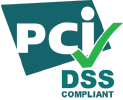In 2006, Kryterion pioneered the enabling technologies for online-proctored (OLP) testing.
Since then, we’ve regularly improved our OLP product making it more responsive with each update to candidate and sponsor needs.
Surprisingly, OLP testing never accounted for more than 25 percent of our annual test volume.
Our clients have typically preferred onsite-proctored testing at one of the 1,100 testing centers in the global Kryterion Testing Network (KTN).

That all changed last spring when 80 percent of our KTN centers closed within a period of 45 days.
At the same time, demand for OLP testing exploded. In fact, it quintupled.
The attention of the testing world was suddenly focused on online-proctored testing since it was the only viable delivery option available.
What certification sponsors say
What follows is bullet-list extravaganza of observations, comments and recommendations from test sponsors participating in a recent testing-industry webinar. Most of them began using online proctoring for the first time in mid-to-late Spring 2020 in order to continue testing during the pandemic.
Their comments should be helpful to other certification sponsors considering online-proctored testing for the first time for their own programs.
Challenges to expect with online-proctored testing
- Ensure exam security by using multiple test forms and having enough items in your bank
- Having a strong relationship with your test-delivery vendor is essential for ensuring test security
- Implement as many layers of security as possible like photo authentication, biometrics, government IDs, room scans, etc.
- Contact the accrediting body for your exam as early as possible to request guidance on delivering online-proctored exams. Most will have a formal application process.
- Prepare for increased customer-service requests. If online-proctored testing is new for your program, it’s new for your candidates as well, and they will have questions about technology and processes. Consider creating an FAQ page on your website to handle their most common questions and requests.
Benefits and opportunities of online-proctored testing

- Provides candidates with a viable test-delivery option during periods of disruption
- Ensures business continuity and incoming test revenue when onsite-proctored testing is unavailable
- Accreditation boards offer guidance on online-proctored testing to facilitate the switch to or increased use of this testing option
- Insulates sponsors by lessening the financial impact from the loss of onsite-proctored test delivery
- Becomes a key element for any disaster-recovery program in response to adverse external events like pandemics
Exam implementation issues
- The most frequently reported candidate issues for online-proctored testing are about technology. These include:
- disabling firewalls
- launching lockdown browsers
- managing operating-system compatibility issues (often with Macs)
- determining minimum system requirements for upload/download speeds and
- addressing unstable Internet connections
- Videos are valuable instructional tools for demonstrating the details of preparing for and taking online-proctored exams. This includes pre-exam authentication tasks like taking photos and enrolling in biometrics. Other video topics include test-day issues such as when to report for the exam, what to remove before the test (e.g., hats, jewelry, headphones, etc.) and what testing aids the sponsor permits in the testing environment
Prepare yourself for the test-candidate experience

- Certification managers advise knowing all about your test vendor’s remote-proctoring capabilities especially specific requirements for hardware and software, webcams, lockdown browsers, authentication modalities, firewalls and acceptable/unacceptable candidate conduct.
- Sponsors should sign up for and take their own exams to understand the online-proctored experience from registration all the way through submitting a completed exam. Expect the unexpected and document everything in the multi-step process. Some sponsors instruct staff to engage in inappropriate behaviors during their tests to see how proctors respond.
- If you have a global testing program, have staff in each geo take an online-proctored exam and record their experiences. This will make customer support much more informed since you’ll know about any impediments.
- Verify your exam-security measures starting with authenticating your test taker. Keep in mind that how you verify your candidate’s identity may be dictated by your accrediting body, if applicable.
Test-sponsor due diligence
- The test-session recordings will be essential for handling test-candidate challenges or appeals. You’ll need evidence of the exam in question.
- Consider auditing test session recordings frequently after launching your online-proctored testing to ensure a smooth experience for candidates.
- Sponsors must communicate the entire online-proctored testing process to candidates including the roles of the proctor and the technician. The latter may deal with issues (e.g., loss of video signal, inappropriate behaviors, etc.) escalated during the exam by the proctor.
- Define exam rules for zero tolerance related to inappropriate test-candidate behavior. If the sponsor’s exam rules include escalations for specific infractions, be sure to communicate them to candidates and, of course, your test-delivery vendor.
Miscellaneous comments by test sponsors

- When launching online-proctored testing, work with your webmaster to announce it on the home page of your website or test-candidate page/portal.
- The first few minutes of the exam launch define the candidate experience. Make sure that it’s smooth.
- Privacy is a big issue for candidates new to online-proctored testing. They don’t like being watched. They don’t like a stranger―or a proctoring team―telling them how to rearrange a room at home in order to create a pristine test environment.
- Candidates articulated fears that testing software (i.e. a lockdown browser) could allow proctors/sponsors to view private files on their hard drives or create a means for viewing their online behavior.







